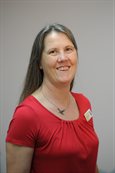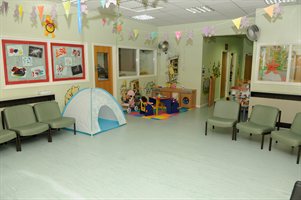Important: ADHD Medication Shortages 2023:
Information for children, young people, and families / carers
At the moment there are problems with the availability and supply of a range of medication used to treat ADHD. There are supplies of medication coming in, but this is changing every day.
At present, it is expected this will remain the situation for supply until start of January 2024.
For now, please continue with the medication you/ or your child has been prescribed.
- Please order repeat medication from your GP with at least 14-days supply left of medication.
- Check with your usual pharmacy if they have the medication or they can order it in when you give the prescription to the GP.
- If your pharmacy cannot source your usual medication: -
- a. Contact other local pharmacies to see if they have any available stock.
Where medication or a particular strength of medication is not available, contact your GP or prescribing clinician to discuss other options available.
For further information or for information to pass onto your child’s educational setting please call the Community Paediatric team on 01604 544264
Contact details
Telephone: 01604 545841
Email: cdc.ngh@nhs.net
Child Development Centre
Northampton General Hospital NHS Trust
Cliftonville
Northampton NN1 5BD
Opening times 08:30 to 16:30 Monday to Friday
How to find us
The child development centre is located on the 2nd floor above the eye department, Area L.
Click here for the hospital map
Referrals
Referrals to the CDC are made via a community paediatrician. An initial referral to that service can be made via the children & young people's referral management centre.
What should I bring to my appointment?
Please bring your child’s Personal Child Health Record (Red Book) so that measurements can be recorded.
Where should I park?
Families invited in for a two day assessment will be sent a 2 day parking permit which will allow free parking in car parks 1, 3, 4 and 5.
Services
The CDC is a centre that offers multi-disciplinary assessment for children from birth until they start school at 4 years of age. The team sees pre-school children who may have a delay in their development or some other special need. Some difficulties are identified at birth, others become apparent or develop as a child grows. This may include additional needs in a number of areas, such as vision, hearing, speech, physical, and emotional development, and/or learning difficulties. Problems can be temporary and disappear as the child gets older, or they may be more permanent.
Referrals must be made in writing and supported by a medical practitioner.
The assessment usually lasts 2 days. During the assessment the child is seen by the team who assess the child's physical health, play skills, social skills, early learning skills, hearing, vision, speech, language, communication and movement. We can then recommend help to meet your child's individual needs and review those needs as necessary. Ongoing care may be provided to families by a number of different members of the team. This may be part of a group session or on an individual basis, and may take place in the child development centre (CDC), at home, or at any pre-school group.
Following the assessment a report is produced which will be discussed with you at a meeting soon after the assessment.
About the team

Bridget Mold, Lead Nurse, CDC
The multi-disciplinary assessment team is made up of nurses, nursery nurses, paediatricians, speech and language therapist, physiotherapists and administrative staff. The team may approach other professionals to gather information about your child and these reports will be discussed with you.
The nurses and nursery nurses guide you and your child through the assessment and are at hand to sort out any problems. They take part in assessing your child’s play, early learning and social skills. One of the nurses will visit each family at home before the assessment.
The paediatrician will discuss your child’s difficulties with you. He/she will examine your child and arrange any investigations that are needed. The doctor will lead the meeting where the assessment report is shared with you and discuss plans for the future.
The speech and language therapist offers specialised assessment, diagnosis and help with a range of difficulties with communication. These include speech, understanding, social interaction and difficulties with eating or drinking. The therapist will give support and advice on any problems in these areas.
The physiotherapist looks at each child’s movement and balance, how the muscles and joints are working and whether he/she needs any special footwear, equipment or follow-up treatment.
The orthoptist checks children’s vision and is based in the eye department 2 floors down. If this check reveals a problem then your child would be referred to the consultant ophthalmologist for review.
The audiologist checks children’s hearing and is based in the children’s hearing clinic in Area K. Your child may be seen during the CDC assessment or an appointment arranged for a later date. This check is particularly important for children with a speech, language or communication difficulty though it may take more than one assessment to establish whether or not their hearing is normal.
The administrative team will give you a warm welcome when you phone or visit the CDC. They will deal with your particular requirements as promptly and efficiently as possible.
Any other information
The CDC has a sensory room, play area, changing facilities, kitchen for parents to use and a number of assessment rooms.



